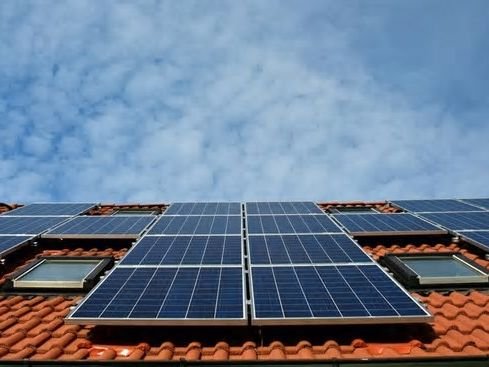In a major step towards advancing renewable energy and lessening the nation’s ecological impact, the Union Cabinet has sanctioned a novel rooftop solar scheme, earmarking a budget of 75,000 crore rupees. This ambitious scheme aims to provide financial incentives to households across India for installing rooftop solar panels, with the target of reaching 1 crore households.
Under the scheme, eligible households can receive a subsidy of up to 78,000 rupees for installing rooftop solar panels. The subsidy will cover approximately 40-50% of the total cost of the solar panels and their installation. This financial support is expected to make rooftop solar installations more affordable and accessible to a wider range of households, especially those in rural and semi-urban areas.
The scheme is part of the government’s larger efforts to promote renewable energy and reduce the country’s reliance on fossil fuels. India has set ambitious targets for increasing its renewable energy capacity, including a goal of achieving 40% of its total electricity generation from non-fossil fuel sources by 2030.
Rooftop solar installations are a key component of these efforts, as they can help reduce the demand for electricity from the grid and contribute to the country’s energy security. Solar energy is also a clean and sustainable source of power, with minimal environmental impact compared to traditional fossil fuels.
The new rooftop solar scheme is expected to create significant economic and environmental benefits. By encouraging households to generate their electricity from solar power, the scheme can help reduce the overall demand for electricity from the grid, which in turn can reduce the need for new power plants and transmission infrastructure.
Additionally, the scheme can create new opportunities for the solar industry and create jobs in installation, maintenance, and related services. It can also promote the use of indigenous solar technology, which can help reduce the country’s dependence on imported energy sources.
The scheme also aligns with the government’s broader vision of achieving energy self-sufficiency and promoting sustainable development. By promoting the use of clean and renewable energy sources like solar power, the scheme can help reduce greenhouse gas emissions and mitigate the impacts of climate change.
The rooftop solar scheme is expected to be implemented in a phased manner, with a focus on reaching households in rural and semi-urban areas. The government will work with state governments, local authorities, and other stakeholders to identify eligible households and provide them with the necessary support to install rooftop solar panel
The green-lighting of the rooftop solar initiative marks a significant stride towards India’s renewable energy objectives and the advancement of sustainable development. By offering incentives to households for producing their eco-friendly power, this initiative can aid in diminishing the nation’s carbon emissions and foster a more environmentally friendly future for all.




